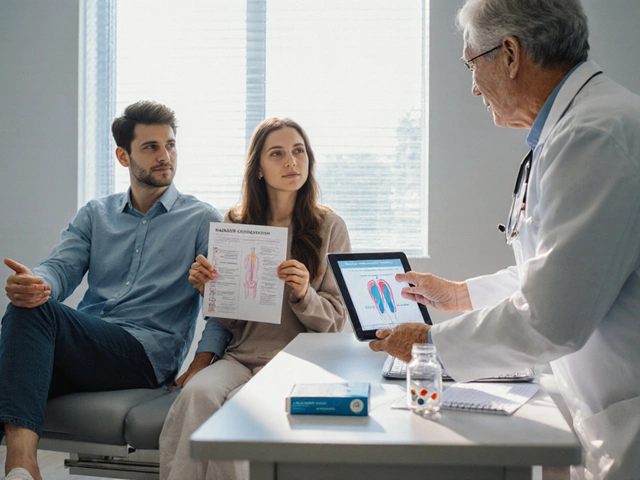Online Pharmacy Alternatives: How to Find Safe Options
Shopping for meds online? You don't have to pick the first site you find. This guide shows practical steps to find safer online pharmacy alternatives so you get real medicine, fair prices, and fewer surprises.
First, check licensing. Legit pharmacies show a physical address, a license number, and a pharmacist you can contact. In the U.S., look for NABP or VIPPS seals. In the UK, check the General Pharmaceutical Council. If a site hides contact details or uses vague addresses, treat it as risky.
Second, require a prescription when appropriate. Reputable online pharmacies ask for a valid prescription for antibiotics, controlled drugs, and many chronic medicines. If a site sells prescription-only drugs with a quick online quiz or no prescription, don’t buy from it.
Third, compare prices but read the fine print. Low prices can be fine, but watch for bulk-only sales, subscription traps, or huge shipping fees. Look for clear refund and return policies before adding anything to cart.
Check reviews and verification
Look up independent reviews on forums and social media rather than trusting on-site testimonials. Search the site name plus words like “scam,” “shipping,” or “quality.” Also use official verification tools from regulators and pharmacy boards. A verified badge helps but always cross-check the issuing authority.
Payment safety matters. Use a credit card or a trusted payment service that offers fraud protection. Avoid wire transfers, cryptocurrency, or direct bank transfers unless you fully trust the vendor. Secure checkout should show HTTPS and a valid certificate.
Shipping, packaging, and generic options
Check shipping times, origin country, and customs rules for your area. Some countries restrict importing certain medicines. Packages should be discreet but properly labeled. If temperature-sensitive meds are involved, ask the pharmacy how they handle cold-chain shipping.
Ask about generics and substitutes. Many trusted pharmacies offer FDA-equivalent generics that cost less but work the same. When switching brands or active ingredients, consult your prescriber to avoid interactions or dosing mistakes.
When in doubt, call. A real pharmacy will have a reachable pharmacist who answers questions about dosing, side effects, and interactions. If you can't talk to a pharmacist, consider another seller.
Finally, keep records. Save receipts, prescriptions, and shipping tracking. If something goes wrong—wrong drug, adverse reaction, or counterfeit—you’ll need documentation for refunds or reporting to regulators.
Finding safe online pharmacy alternatives takes a few extra checks but pays off in peace of mind and better health. Follow these steps, and you're much more likely to end up with a reliable source for your meds.
Think about alternatives beyond big foreign sites. Try local chain pharmacies that offer online refills, telehealth services that link directly with licensed dispensaries, or independent pharmacies with pickup options. Pharmacy discount programs and manufacturer coupons can cut costs without risking quality. For chronic meds, ask your doctor about 90-day mail-order supplies from verified U.S. pharmacies. Small extra steps now can save money and avoid the risks of unverified sellers later. Keep safety over price.
Top Online Pharmacy Alternatives in 2025 to CanadaDrugsDirect.com
Choosing the right online pharmacy is crucial for accessing affordable and safe prescription medications. With CanadaDrugsDirect.com being a popular choice in the past, it's important to explore its alternatives in 2025. This article reviews eight reputable online platforms offering competitive pricing and reliable services. Each alternative is examined for its pros and cons to help you make an informed decision.
About
Pharmacy Reviews
Latest Posts


Phenibut: The Natural Solution for Anxiety, Stress, and Sleep Disorders
By Marcel Kornblum Jun 27, 2023

How Formulation Patents on Drug Combinations Extend Pharmaceutical Exclusivity
By Marcel Kornblum Jan 29, 2026

How Men Can Prevent and Address Unwanted Pregnancies
By Marcel Kornblum Sep 30, 2025

